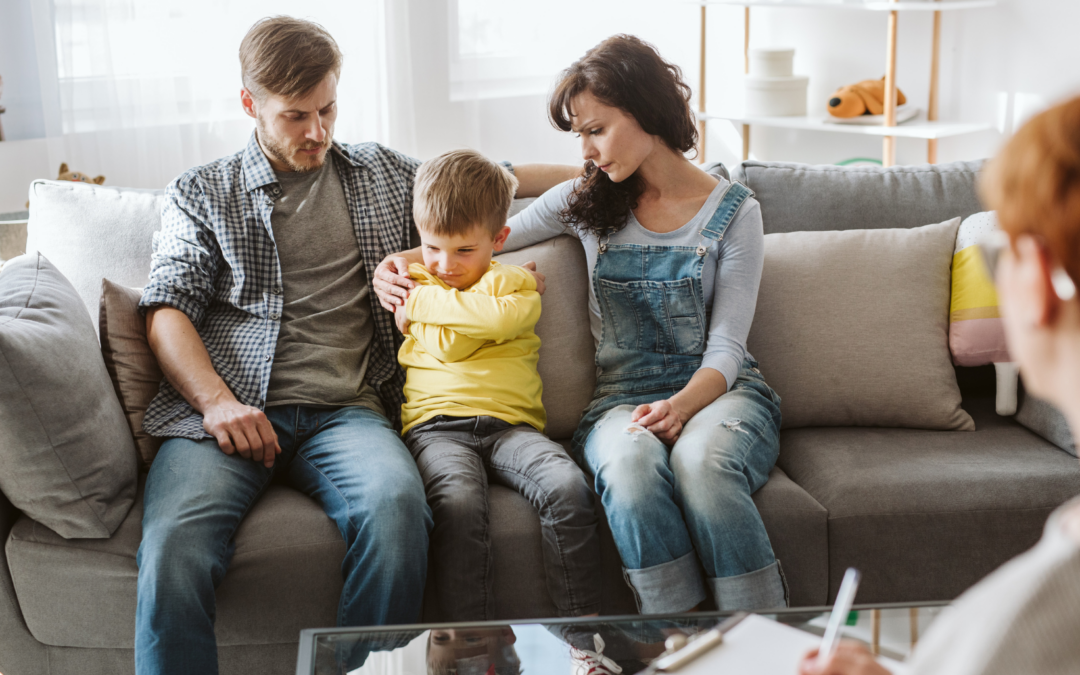Divorce isn’t just the end of a marriage—it’s the beginning of a new parenting journey.
No matter how things ended, one thing remains: you both still want what’s best for your kids.
But co-parenting after a split? Yeah, that can be tricky.
The good news? Family therapy for divorced parents can help you navigate this new chapter with less stress and more teamwork.
Let’s dive into how it works.
Can You Do Family Therapy with Divorced Parents?
Absolutely!
In fact, family therapy for divorced parents is one of the best ways to create a healthy co-parenting dynamic. Think of it as a neutral space where you and your ex can work through conflicts, improve communication, and develop a plan that puts your children first.
A therapist can help divorced parents:
- Set clear boundaries so co-parenting doesn’t turn into a battlefield.
- Improve communication (because let’s be real, texting about schedules can get heated fast).
- Work through lingering tensions that might be affecting the kids.
- Create a co-parenting plan that’s consistent and fair.
Even if you and your ex aren’t best friends (or even close), family therapy for divorced parents can help you find a way to parent together in a way that benefits your children.
What is the Best Therapy for Children of Divorced Parents?
Divorce is tough on everyone, but for kids, it can be confusing, scary, and sometimes even guilt-inducing. That’s why family therapy for divorced parents often includes therapy for the children too.
Some of the best therapy options for kids include:
- Play therapy (for younger children who might not be able to express their feelings in words).
- Cognitive-behavioral therapy (CBT) to help older kids manage their emotions and adjust to the changes.
- Family therapy sessions where both parents and kids can openly talk about their feelings in a safe, guided environment.
The goal of therapy isn’t just to help kids cope with the divorce—it’s to help them feel heard, loved, and supported by both parents. And guess what? When parents do the work in family therapy for divorced parents, kids feel the benefits too.
What is the Hardest Age for Parents to Divorce?
While divorce is never easy, research suggests that certain ages can be more challenging than others.
- Toddlers and Preschoolers (0-5): Younger children may not fully understand the situation, but they can still feel the emotional shifts. Changes in routine and environment can be especially tough for them.
- Ages 6-12: This is often considered the hardest time for kids to experience divorce. They’re old enough to understand what’s happening but not old enough to process it maturely. They may feel torn between parents or even blame themselves.
- Teenagers (13-18): While teens can grasp the reasons behind a divorce, they might react with anger, withdrawal, or rebellious behavior. They often struggle with divided loyalties or feel the need to “take sides.”
The good news? Family therapy for divorced parents can help children at any age adjust in a healthy way. By providing them with emotional tools and reassuring them that both parents love them, therapy can make a world of difference.
What Type of Therapy is Best for Divorce?
Divorce is an emotional rollercoaster, and there’s no “one-size-fits-all” approach to handling it. That being said, here are some of the most effective types of therapy for both parents and children:
- Co-Parenting Therapy – A must for divorced parents who need help working together peacefully for their kids’ sake. This is the backbone of family therapy for divorced parents and focuses on reducing conflict and improving teamwork.
- Individual Therapy – Because let’s be honest, divorce is rough. Therapy can help parents process their emotions, deal with stress, and learn healthier coping mechanisms.
- Child-Centered Therapy – Whether it’s play therapy for younger kids or talk therapy for teens, this type of therapy helps children express their feelings and adjust to the new family dynamic.
- Family Therapy – Getting the whole family (or at least both parents and the kids) in a room with a therapist can work wonders. It helps create open communication and a shared understanding of how to move forward.
At the end of the day, family therapy for divorced parents is about making life smoother for everyone involved.
Whether it’s improving communication, easing tension, or helping kids adjust, the right therapy can make co-parenting feel less like a battle and more like a team effort.
Final Thoughts
Divorce changes a lot of things, but it doesn’t change the fact that your kids need both of you.
Family therapy for divorced parents can be the key to creating a stable, loving environment for them—one where co-parenting doesn’t have to feel like an endless struggle.
So, if you’re feeling stuck, frustrated, or just want to make things easier for your children, consider giving therapy a try.
Because when parents work together (even after divorce), everyone wins—including your kids.

Location
Crossroads: Greenfield Road and Brown Road
Call or Text
480-937-2860
